Best cultural festivals worldwide – Embark on a captivating exploration of the world’s best cultural festivals, where vibrant traditions, captivating performances, and profound cultural exchange converge. From the vibrant streets of Brazil to the sacred lands of India, these festivals ignite our senses and connect us to the rich tapestry of human creativity.
As we delve into the heart of these cultural extravaganzas, we’ll uncover their origins, unique features, and the profound impact they have on local communities and economies. Prepare to be immersed in a world of colors, rhythms, and traditions that transcend boundaries and celebrate the indomitable spirit of humanity.
Cultural Festivals Worldwide: An Overview
Cultural festivals are vibrant expressions of human creativity and diversity. They celebrate the unique heritage, traditions, and customs of communities worldwide. These festivals play a pivotal role in promoting cultural understanding, fostering a sense of belonging, and preserving intangible cultural heritage.
Cultural festivals have a rich history, dating back to ancient times when communities gathered to mark important events, such as harvests, solstices, and religious holidays. Over time, these gatherings evolved into elaborate celebrations that showcased local arts, crafts, music, dance, and cuisine. Today, cultural festivals continue to thrive, offering a glimpse into the cultural fabric of different societies.
Indulge in the vibrant tapestry of the world’s best cultural festivals, where traditions and customs come alive. For those seeking the ultimate in luxury travel, explore our guide to top luxury travel destinations , where you can witness these festivals in unparalleled style.
From the colorful Holi in India to the majestic Carnival in Brazil, each celebration offers a glimpse into the rich cultural heritage of our planet.
Impact on Local Communities and Economies
Cultural festivals have a profound impact on local communities. They provide a platform for cultural expression, allowing residents to share their traditions and connect with their cultural roots. These festivals also foster a sense of community pride and belonging, bringing people together from diverse backgrounds.
Economically, cultural festivals can be a significant driver of tourism. They attract visitors from near and far, who come to experience the unique cultural offerings and support local businesses. The revenue generated from these events can support local economies, create jobs, and promote sustainable development.
To experience the vibrant cultures of the world, attending cultural festivals is an unparalleled way to immerse oneself in local traditions. These events often showcase music, dance, art, and cuisine, providing a glimpse into the heritage and customs of different regions.
While exploring these cultural gems, it’s essential to consider sustainable travel practices by opting for sustainable travel destinations that prioritize environmental conservation and community well-being. By embracing sustainability, travelers can not only enjoy these incredible festivals but also contribute to preserving the cultural and natural treasures of our planet for generations to come.
Exploring Notable Cultural Festivals
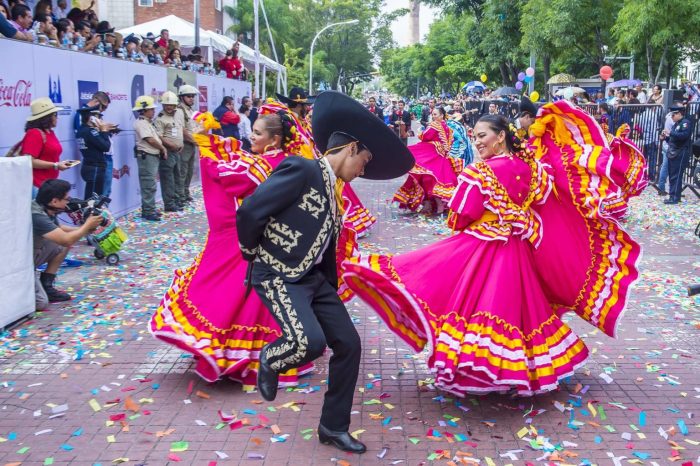
Cultural festivals worldwide offer a glimpse into the traditions, beliefs, and customs of diverse societies. From vibrant carnivals to ancient religious rituals, these events showcase the unique cultural heritage of regions and communities.
Origins and Unique Features
The origins of cultural festivals often lie in religious beliefs, historical events, or agricultural practices. Over time, these festivals have evolved into vibrant celebrations that reflect the local culture and way of life. Some festivals, like Carnival in Brazil, are known for their elaborate costumes, music, and dancing, while others, like the Holi festival in India, are centered around religious rituals and the celebration of spring.
Comparison of Cultural Festivals
| Festival | Theme | Location | Duration |
|---|---|---|---|
| Carnival | Celebration of life before Lent | Brazil, Rio de Janeiro | 4 days |
| Holi | Festival of colors celebrating spring | India | 2 days |
| Oktoberfest | Celebration of beer and Bavarian culture | Germany, Munich | 16 days |
| Songkran | Thai New Year celebration | Thailand | 3 days |
| Day of the Dead | Celebration of deceased loved ones | Mexico | 2 days |
Cultural Immersion and Authenticity
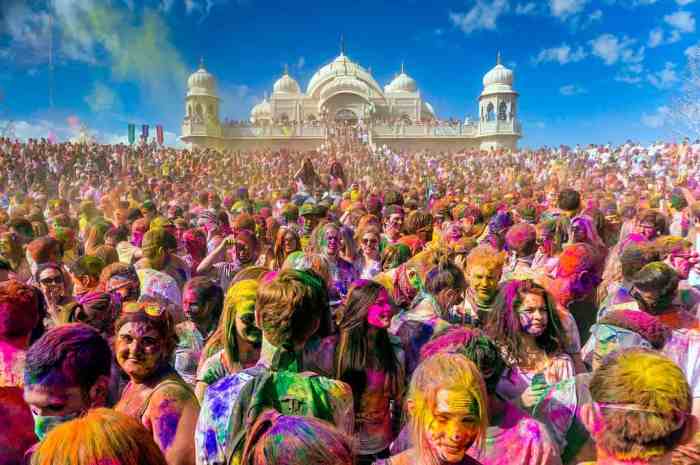
Cultural immersion is a vital aspect of cultural festivals, as it provides attendees with the opportunity to experience different cultures firsthand. This can be achieved through various means, such as traditional performances, food, crafts, and rituals. By participating in these activities, attendees can gain a deeper understanding and appreciation of the diverse cultures represented at the festival.
Authenticity is equally important, as it ensures that cultural festivals accurately represent the traditions and customs of the cultures they celebrate. This involves using traditional materials, techniques, and practices to recreate cultural experiences as faithfully as possible. By preserving and promoting traditional practices and customs, cultural festivals play a crucial role in safeguarding cultural heritage and fostering inter-cultural understanding.
Preserving and Promoting Traditional Practices and Customs
Many cultural festivals worldwide have successfully preserved and promoted traditional practices and customs. For example, the Jaipur Literature Festival in India showcases traditional Indian literature, music, and dance, while the Glastonbury Festival in the United Kingdom celebrates contemporary and alternative music, arts, and culture. The Rio Carnival in Brazil is renowned for its vibrant samba parades and colorful costumes, while the Edinburgh Fringe Festival in Scotland is the world’s largest arts and culture festival, featuring a diverse range of performances and exhibitions.
These festivals not only provide a platform for cultural expression but also contribute to the preservation and transmission of traditional knowledge and skills. By showcasing traditional practices and customs, cultural festivals help to ensure that these cultural traditions continue to thrive and be passed down to future generations.
Economic and Social Benefits
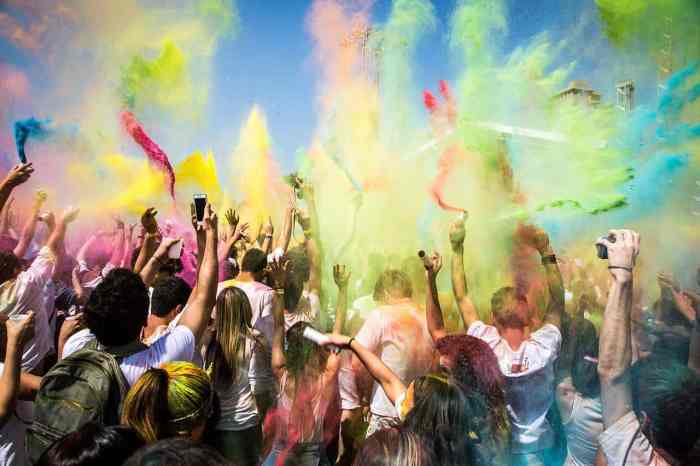
Cultural festivals serve as powerful catalysts for economic growth and social transformation. They generate significant revenue, foster community spirit, and contribute to the preservation and revitalization of cultural heritage.
Tourism and Economic Growth
- Cultural festivals attract a large number of tourists, boosting local economies through increased spending on accommodation, food, beverages, and souvenirs.
- Festivals also stimulate the growth of local businesses, such as hotels, restaurants, and transportation providers.
- For example, the Edinburgh Fringe Festival, the world’s largest arts festival, generates an estimated £313 million for the Scottish economy each year.
Job Creation
- Cultural festivals create temporary and permanent jobs in various sectors, including hospitality, event management, and the arts.
- These jobs provide income for local residents and contribute to the development of a skilled workforce.
- The Coachella Valley Music and Arts Festival in California creates over 10,000 temporary jobs each year.
Infrastructure Development, Best cultural festivals worldwide
- Cultural festivals often lead to infrastructure improvements, such as the construction of new roads, public transportation systems, and performance venues.
- These improvements benefit not only the festival but also the surrounding community.
- The Sydney Festival, Australia’s largest multi-arts festival, has spurred the development of several new cultural venues, including the Sydney Opera House.
Community Spirit and Social Cohesion
- Cultural festivals foster a sense of community and belonging by bringing people together to celebrate shared traditions and experiences.
- They promote intercultural dialogue and understanding, breaking down barriers between different cultures.
- The Notting Hill Carnival in London, Europe’s largest street festival, is a vibrant celebration of Caribbean culture that unites people from diverse backgrounds.
Preservation of Cultural Heritage
- Cultural festivals play a vital role in preserving and transmitting cultural heritage to future generations.
- They provide a platform for traditional arts, crafts, and music to be showcased and passed down.
- The Smithsonian Folklife Festival in Washington, D.C., celebrates the cultural traditions of communities from around the world, contributing to the preservation of intangible cultural heritage.
Cultural Exchange and Collaboration
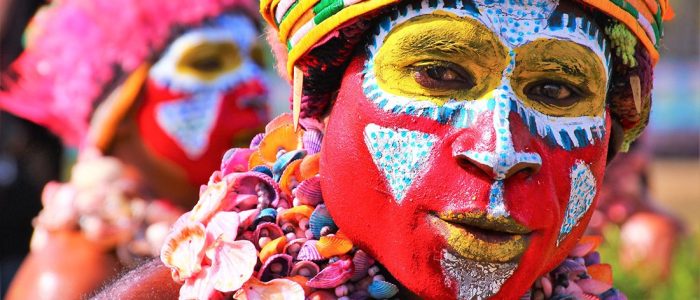
Cultural festivals serve as vibrant platforms for cultural exchange and collaboration, bringing together artists, performers, and cultural organizations from diverse backgrounds. These festivals provide a shared space for showcasing cultural expressions, fostering dialogue, and promoting mutual understanding.
Global Cultural Exchange
Renowned festivals like the Edinburgh Fringe Festival and the Glastonbury Festival attract performers from around the world, showcasing a kaleidoscope of artistic disciplines. These events create opportunities for artists to connect, share ideas, and collaborate on innovative projects. Cultural exchange through festivals enriches the artistic landscape, broadening perspectives and inspiring new creative endeavors.
Cross-Cultural Collaboration
Festivals also facilitate cross-cultural collaborations, such as the International Arts Festival in Adelaide, Australia, which has featured collaborations between Indigenous Australian artists and international performers. These partnerships foster cultural understanding and break down barriers, promoting a spirit of inclusivity and appreciation for diverse cultural perspectives.
Promoting Understanding and Appreciation
By bringing people together from different cultures, festivals foster empathy and understanding. The shared experiences of music, dance, and art create a common ground that transcends cultural boundaries. Festivals encourage attendees to engage with cultures they may not be familiar with, promoting respect and appreciation for cultural diversity.
Challenges and Opportunities
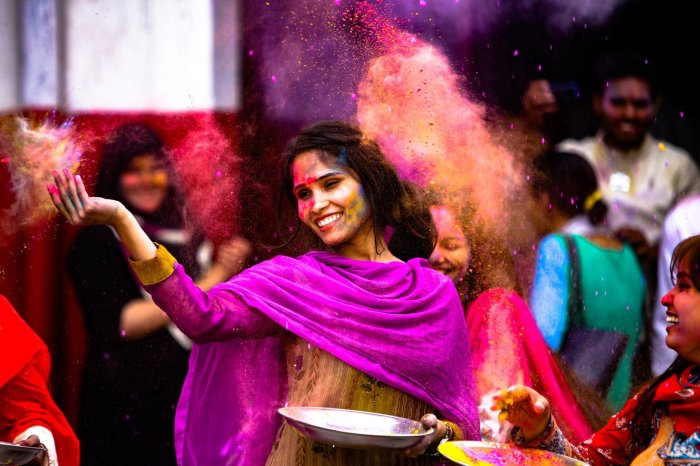
Cultural festivals face various challenges, including funding, logistics, and cultural appropriation. Funding is crucial for festival planning, execution, and marketing. Logistics involve managing venues, transportation, and accommodation for attendees and performers. Cultural appropriation occurs when elements of a culture are used by another culture without proper acknowledgment or respect.
For a truly immersive cultural experience, explore the world’s best cultural festivals. From vibrant Holi in India to the enchanting Glastonbury Festival in the UK, there’s a festival for every taste. To plan your perfect festival-hopping adventure, consider using a travel itinerary template to help you organize your travel, accommodation, and activities.
With a well-planned itinerary, you can maximize your time at each festival and experience the best that the world’s cultures have to offer.
Despite these challenges, cultural festivals offer opportunities for innovation and growth. Technology can enhance festival experiences through virtual events, interactive exhibits, and mobile applications. Collaboration between festivals and cultural organizations can expand programming and reach new audiences. Sustainability initiatives can reduce environmental impact and promote responsible festival practices.
Overcoming Challenges
Several festivals have successfully overcome challenges. The Glastonbury Festival in the UK implemented a cashless payment system to reduce theft and streamline transactions. The Burning Man Festival in the US emphasizes sustainability by encouraging participants to leave no trace and use renewable energy sources. The Rio Carnival in Brazil has adapted to changing circumstances by incorporating modern music and technology while preserving traditional samba roots.
Last Recap: Best Cultural Festivals Worldwide
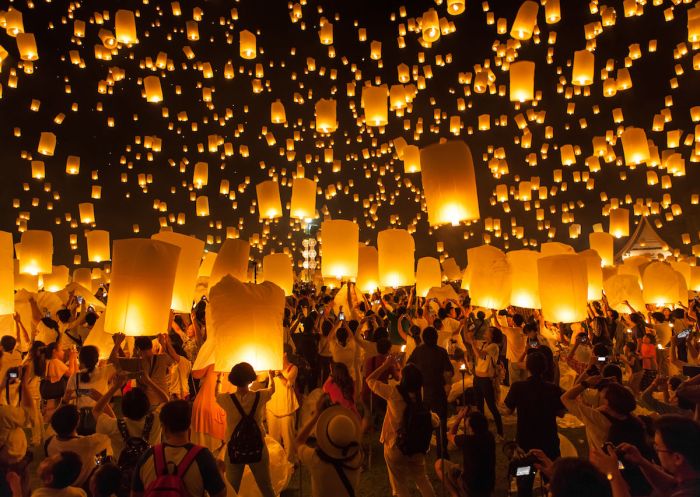
In conclusion, the best cultural festivals worldwide stand as beacons of cultural diversity, fostering understanding, preserving heritage, and enriching our collective human experience. They remind us that despite our differences, we are united by our shared love of art, music, and the vibrant expressions of our cultures. As we continue to celebrate these festivals, let us embrace their transformative power and work together to create a world where cultural exchange flourishes and the human spirit shines brightly.
FAQ Overview
What is the significance of cultural festivals?
Cultural festivals play a crucial role in promoting cultural diversity, preserving heritage, fostering community spirit, and boosting local economies.
How can cultural festivals provide opportunities for cultural immersion?
Cultural festivals offer attendees a firsthand experience of different cultures, allowing them to engage with traditional practices, customs, and art forms.
What are some examples of popular cultural festivals worldwide?
Carnival in Brazil, Holi in India, Oktoberfest in Germany, Chinese New Year, and Day of the Dead in Mexico are just a few examples of renowned cultural festivals that attract millions of visitors each year.